Lecture
Germany trading house Fede Fugger in the 15th century. organizes a bureau of fuggers, who for a fee paid their customers such newsletters. In many ways, the Fugger Bureau has become the prototype of a modern news agency. It is Germany that will become the birthplace of the press in the 15th century, the largest event in the history of Journalism, Johannes Guttenberg invented the printing press.
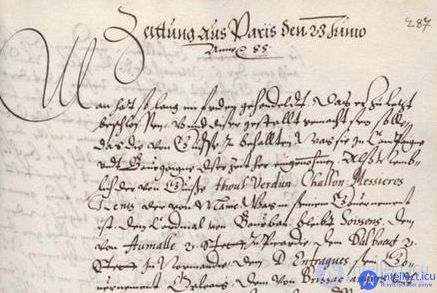
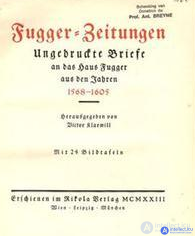
Fugger (Fugger) - the largest merchant and banking family in Germany XV-XVII centuries., The ancestor of which was a weaver, and part-time merchant - Hans Fugger, who arrived in 1367 to a settlement in Augsburg. Hans fugger's



Advertisements
In the XVI century. Fugger, nicknamed Rich (), had the ability to influence power structures. Family capital from 20 thousand. Guilders grew to 7 million. In the period from 1487 to 1546. The Fuggers credited the kings, the emperor of Germany and the Pope himself, influenced the election of monarchs, financed military companies and had the largest capital of that era. Jakob fugger
Sales agents collected business, political, and general information for the Fuggers. These messages were specially arranged and neatly rewritten, became the “newspapers” of the Fugger banking house - “Fuggerzeitungen” and were distributed in Europe between 1568 and 1605. The Fugger manuscript newspapers - “Fuggerzeitungen” were not sold freely, but were delivered only to a select circle of recipients, which included members of the Fugger family, as well as customers of the banking house.
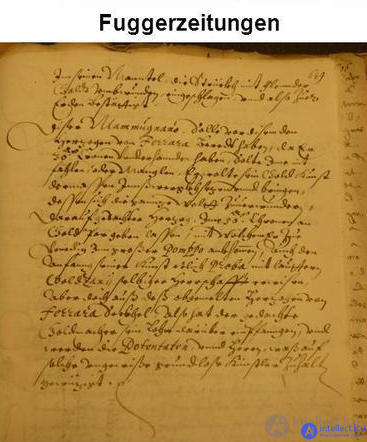
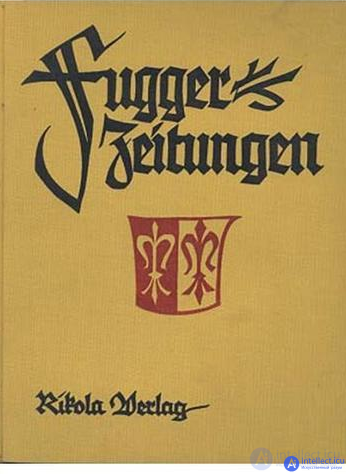
Fuggerzeitungen The closed nature of the distribution of Fuggerzeitungen does not allow them to be considered direct predecessors of the first European newspapers.
"Das Ehrenbuch der Fugger" is considered one of the most important and valuable books about the German-speaking family.
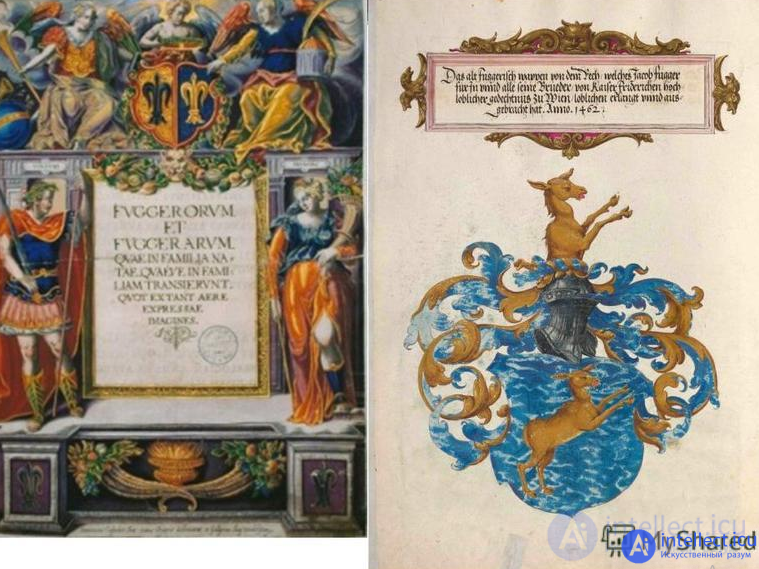

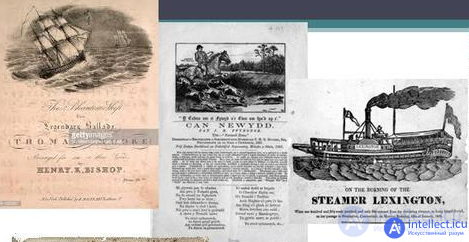
In addition to hand-written newspapers, in the information flow of the XVI-XVII centuries. printed pamphlets, “news books,” “newsletters,” “newspaper postcards,” “reports,” “stories,” and “news ballads” were widely distributed. These were printed brochures of small format and volume, which promptly responded to various events both within the country and abroad and in many ways resembled the first newspapers.
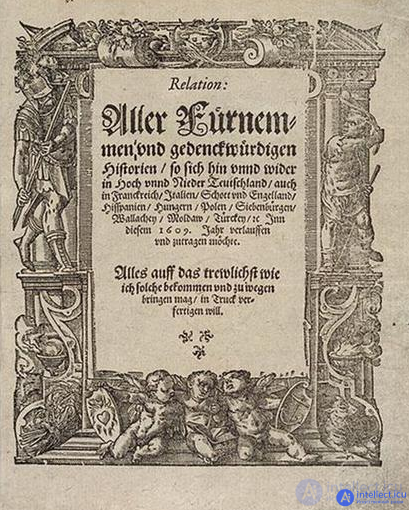
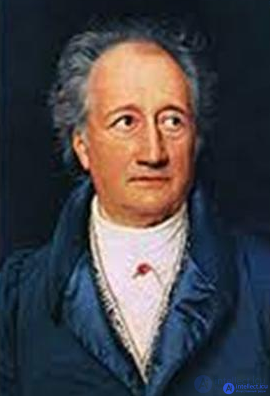
1609 is considered the year of birth of European newspaper periodicals, Germany became its place of appearance. In January 1609, a newspaper called “Relation: Aller Furnemmen” was published in Strasbourg. It contained news from Cologne, Antwerp, Rome, Venice, Vienna and Prague.
The editor and publisher of this weekly was printer Johann Karolus, who previously worked on handwritten newsletters.
The era of books is gradually replacing the time of newspapers. Printing houses were most often formed at monasteries and at universities. Initially, the authorities did not pay attention to the emergence of such powerful propaganda tools. But soon the press across Europe will come under heavy pressure from censorship. The first print media most often did not fall short of authorship and the publisher was not indicated on them. After the appearance and toughen. censorship, the typographer and publisher were required to put their name on the title page. Gradually, handwritten editions of newsletters began to be replaced by the first printed newspapers. In the names of the first European newspapers, the word Mercury (messenger) was common.
The first newspapers did not look anything like today's paper and font quality is very poor. Reminded brochures. No columns or titles.
One of the first to understand the advantage of printing was German Michael von Aitzing in the 16th century.
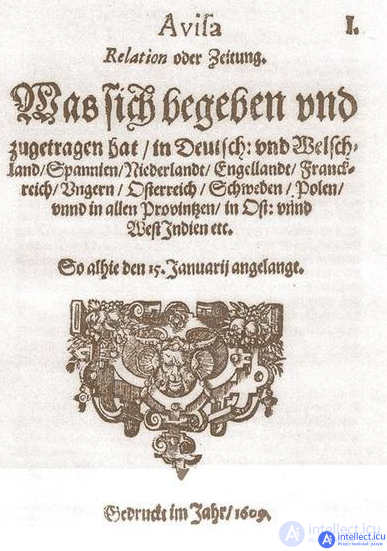
In 1609, Avisa Relation oder Zeitung appeared in Augsburg, a weekly newspaper published by Luca Schulte.
18 The first print newspapers did not have a clearly defined name. The place of publication and the name of the editor-publisher were not usually indicated. The location of the news material did not depend on the importance of the described event, but on the day this information arrived. The news itself was practically not commented on and presented without any headings, political events were interspersed with far from always reliable sensations.
The first printed newspapers appeared in Germany in 1609 in Strasbourg and Augsburg. Information was placed without any connection in the strip. Facts without analysis. Dry language was explained, on the one hand, by strict censorship, and on the other, by the tradition of conducting political discussion with the help of pamphlets. The newspaper resembled a book in 1 \ 4 sheets. 1st newspapers were published weekly. The daily print appeared later.
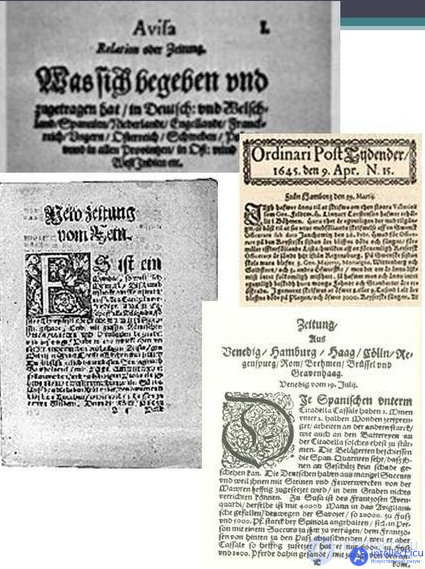
In the 17th century Newspapers are published in many large peas in Germany. By the end of 17, newspapers had conquered Germany. Nobody doubted their benefit and necessity.
In 1697, a book on the benefits of newspaper reading was published in Hamburg, which emphasizes that a worthy member of the public should be interested in the newspaper.
But the further development of journalism in Germany was based. for a long time due to economic and socio-political reasons (breaks up, unites at the end of the 19th century).
German newspapers remained information-commercial for a long time. Journalism in Germany began to fulfill the ideological and propaganda function with the advent of Marx and Engels. English and French journalism, which arose later, overtook it in the 18th century. and the pace of development, and the level of content, and the quality of the "training" of journalists.
Comments
To leave a comment
Journalism History
Terms: Journalism History